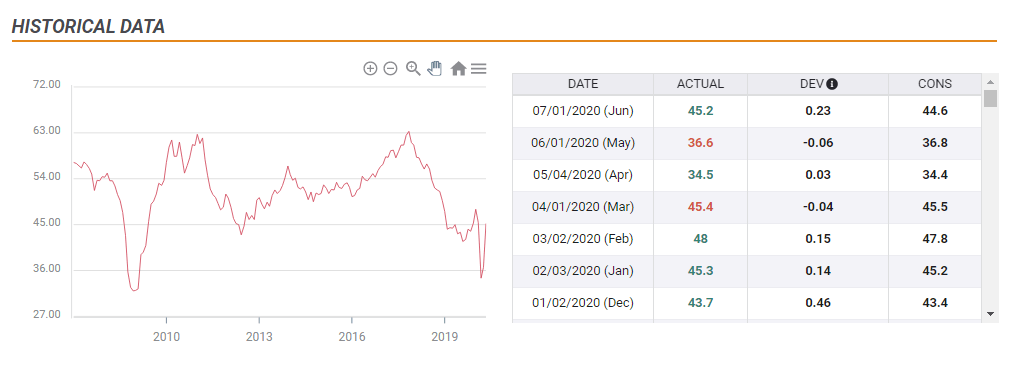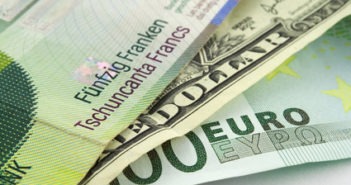On a recovery path? Economists expect Markit’s Purchasing Managers’ Indexes to return to expansion territory – scores above 50 points, in most preliminary figures for July. Such data from the forward-looking surveys would compound the recovery fund approved by EU leaders after five exhausting days in Brussels.
The old continent suffered badly from the coronavirus crisis in March and April, beginning to gradually emerge from the crisis in May. By mid-July, most activities – apart from large gatherings – have returned to normal. Flareups of COVID-19 have been limited to localities – at least for now.
The European Central Bank has been providing ample liquidity and has reiterated its commitment to do more just last week. In addition, hopes for an EU are also likely to have pushed expectations higher – even before this week’s agreement.

French PMIs were already above 50 in June and are forecast to continue their upward march forward, showing a faster rate of expansion. Statistics for the continent’s second-largest economy are the first ones out the gate and may have an outside impact.
Almost all the other figures remained below that threshold and continued pointing to contraction last month and are now expected to move up.
German Manufacturing as a laggard?
The only notable expectation is perhaps the most significant figure – German Manufacturing PMI. The industrial sector in Europe’s locomotive struggled early in the year as exports to China dropped amid the early outbreak of COVID-19. It then recovered but may remain in contraction territory.
The sector is critical as supply chains impact the rest of the continent and as the German export machine keeps the eurozone’s trade balance positive. Will it remain in contraction territory and drag the common currency lower despite improvements in other indicators?
Recent history leaves room for optimism – German Manufacturing PMI beat expectations in the past five of seven releases. Will that happen once again? A leap above 50 for this heavyweight sector would complete a positive picture from PMIs.

EUR/USD reactions
In case all or almost all PMIs advance above 50, the euro would receive a tailwind that would help it advance. It would compound the historic EU recovery fund agreement that was reached on Tuesday and was probably not captured by the surveys.
If too many indicators lag behind – especially the German Manufacturing PMI and the eurozone composite figure – EUR/USD has room to fall. This scenario seems unlikely,
What happens if the actual outcome meets estimates? In that case, there may be room to the upside for the currency pair. Apart from the upbeat news from Brussels, EUR/USD has risen amid dollar weakness. The safe-haven greenback suffered from selling pressure amid a plethora of reports related to progress in developing a coronavirus vaccine. Advances announced by AstraZeneca, Pfizer, Moderna, and Synargien have all indirectly kept EUR/USD bid.
Conclusion
Eurozone preliminary PMIs for July carry upbeat and reasonable expectations. While German Manufacturing PMI could dampen the picture, there is room for a positive surprise. Bulls are dominating in EUR/USD amid the EU agreement and optimistic vaccine news.
Get the 5 most predictable currency pairs
Eurozone PMIs Preview: Return to positive territory may complete bullish week for EUR/USD
